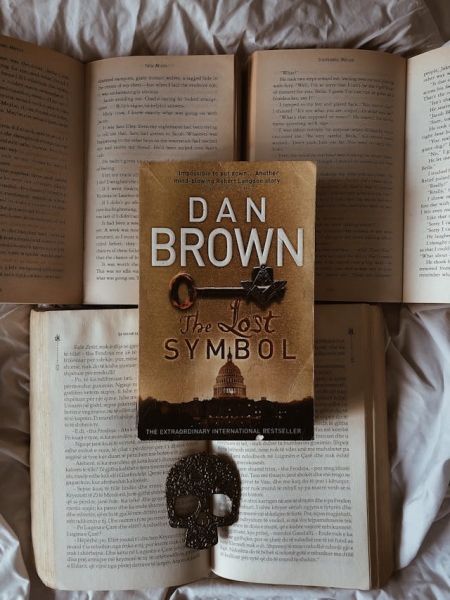Journey Through the Written Word: Navigating of Book Review

In the vast landscape of literature, book reviews function guiding lighting, illuminating the route for readers and writers alike. But what precisely is a book evaluation, and why is it essential to navigate via this procedure efficaciously? A book review is more than just a critique; it is a crucial evaluation of a literary work, aiming to provide insights into its merits and shortcomings. Its significance transcends mere critique, playing multifaceted roles inside the realm of literature.
Understanding the Purpose of Book Reviews
A book review serves as a cornerstone of literary discourse, presenting readers and critics alike a platform to have interaction with and compare literary works. Beyond being a critique, a book review encapsulates an evaluation of a literary piece while offering readers with precious insights. It acts as a compass inside the large ocean of literature, guiding readers in the direction of works that align with their tastes and interests.
In the area of literature, book reviews keep multifaceted importance. They most effectively offer readers information about a book's content material and delve into its broader implications, exploring themes, characters, and narrative strategies. For authors and publishers, positive reviews serve as testimonials to a book's quality, enhancing its visibility and appeal to potential readers. Conversely, constructive criticism in reviews gives authors valuable feedback for refinement and increase of their craft.
Crafted with care and precision, book reviews provide a roadmap for readers, steerage them thru the numerous landscape of literature. Whether looking for escapism, enlightenment, or emotional resonance, readers depend upon opinions to navigate the expansive array of titles. In essence, book reviews play an essential characteristic in fostering a deeper appreciation and knowledge of literature, enriching the literary surroundings and shaping the literary tastes of readers.
Essential Elements of a Well-Written Book Review
Crafting a compelling book review requires attention to element and a keen expertise of its components:
- Summary of the Book: Begin by offering a concise but comprehensive summary of the book's plot, setting the stage for next analysis.
- Analysis of Themes, Characters, and Plot: Delve deeper into the nuances of the story, exploring its themes, character improvement, and plot twists. Consider the writer's intentions and the underlying messages woven into the narrative.
- Evaluation of Writing Style and Effectiveness: Assess style, examining elements consisting of prose, dialogue, and pacing. Evaluate how successfully the writer conveys their thoughts and engages the reader.
- Personal Reflection and Recommendation: Conclude your review with a reflection on the book's impact and recommendation for readers. Share your thoughts candidly, highlighting what resonated with you and who might appreciate the book's merits.
Strategies for Writing Effective Book Reviews
Mastering the art of book reviewing demands an approach that encompasses plans and execution. Before delving into the intricacies of the book, take the time to acquaint your self with the writer's background, preceding works, and the genre of the book. Understanding the author's context and literary style can provide precious context for your review and enhance your potential.
As you embark to your reading journey, adopt a systematic approach to note-taking. Jot down observations, memorable quotes, and reactions to key plot points, allowing you to capture your initial impressions and insights as they unfold. Organize your notes, categorizing them primarily based on topics, character development, writing style, and every other applicable element of the book.
Structure your review in a logical and coherent manner, following a conventional essay layout with an introduction, body paragraphs, and a conclusion. The introduction should offer a short review of the book and establish the context in your review. The body paragraphs should delve into precise factors of the book, along with plot, characters, themes, and writing style, offering analysis and observation.. Finally, the conclusion should summarize your key observations and guidelines, leaving readers with a clear understanding of your angle at the book.
Navigating the World of Book Review Platforms and Communities
In today's digital age, the arena of book opinions has expanded exponentially, finding communities and platforms online. Websites along with Goodreads, Amazon, and Barnes & Noble serve as digital havens for bibliophiles, offering a repository of book opinions, scores, and tips. Readers can explore a plethora of titles, glean insights from fellow readers, and make informed decisions about their next literary adventure. These platforms also provide authors with valuable feedback and exposure, shaping the trajectory in their literary careers.
Moreover, literary magazines and journals continue to play a pivotal function in fostering intellectual discourse and literary criticism. These esteemed publications provide platforms for book reviews, essays, and analyses, imparting readers notion-provoking insights into current literature. By enticing with those publications, readers can delve deeper into the literary panorama, discover new authors and views, and improve their know-how of the written word. Additionally, book blogging groups offer a more intimate and interactive space for readers and writers to connect. Through blogs and social media structures,book fanatics can share their ardor for literature, alternate hints, and have interaction in spirited discussions about their favored books. These groups foster a feel of camaraderie and belonging, transforming the solitary act of reading into a communal experience.
As we conclude our journey through the written word, let us reflect on the transformative power of book reviews. Embrace the artwork of book reviewing as a vehicle for discovery, connection, and celebration of the written phrase. So, expensive reader, I invite you to embark on your own journey through the pages of literature and proportion your mind and reviews with the world. Happy reading!
There are no published comments.
New comment